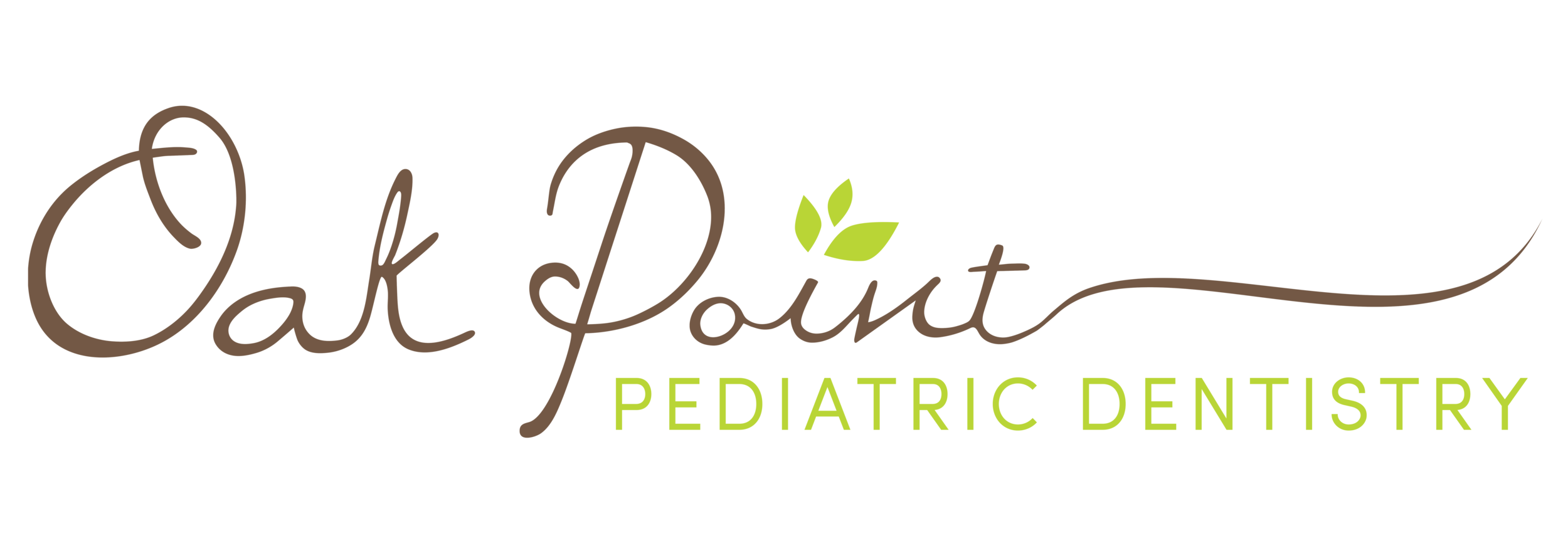Billing & Insurance
What about finances?
Payment for professional services is due at the time we provide the dental treatment. We make every effort to provide a treatment plan that gives your child the best possible care while adhering to your timetable and budget. We accept cash, personal checks, debit cards and most major credit cards.
What is your office policy regarding dental insurance?
We will happily file your claim for you if we receive your complete insurance information on the day of the appointment. We will collect the estimated amount insurance is not expected to pay, so please be familiar with your insurance benefits. Your insurance company is legally required to pay each claim within 45 days of receipt. We file all insurance claims electronically, so your insurance company will receive each claim within days of the treatment. You're responsible for any balance on your account after 45 days, whether insurance has been paid or not. If you haven't paid your balance within 60 days, we add a re-billing fee of 1.5% to your account each month until paid. We gladly send you a refund once your insurance compensates us. Accounts over 90 days will be sent to a collection agency.
We file dental insurance as a courtesy to our patients. We do not have a contract with your insurance company, only you do. We are not responsible for how your insurance company handles its claims or for what benefits it pays on a claim. However, we can certainly assist you in estimating your portion of the cost of treatment. We at no time guarantee what your insurance will or will not do with each claim. We also cannot be responsible for any errors in filing your insurance. Once again, we file claims as a courtesy to you.
Please keep in mind:
Dental insurance is an aid. Dental insurance is meant to be an aid in receiving dental care. Many patients think that their insurance pays 90-100% of all dental fees, yet this is not true. Most plans pay 50- 80% of the average total fee. Some pay more, some less. The percentage is usually determined by how much you or your employer pays for coverage or the type of contract you/your employer have with the insurance company.
Your insurance company determines your benefits, not our office. You may notice that sometimes your dental insurer reimburses you or the dentist at a lower rate than the dentist's actual fee. Frequently, insurance companies state that the reimbursement was reduced because your dentist's fee has exceeded the usual, customary or reasonable fee (UCR) used by the company. This can be confusing because it gives the impression that any fee greater than the amount paid by the insurance company is unreasonable, or well above what most dentists in the area charge for a certain service. This can be very misleading and is not accurate. Insurance companies set their own schedules, and each company has a different set of fees it considers allowable. These allowable fees may vary widely since each company collects fee information from claims it processes. The insurance company then takes this data and chooses a level it calls the "allowable" UCR Fee. This data can be up to three to five years old, and often these "allowable" fees are set by the insurance company so they can make a net 20-30% profit. Unfortunately, this implies that your dentist is "overcharging," rather than that the insurance company is "underpaying," or that its benefits are low. In general, expect a lower UCR figure if the insurance policy is less expensive.
Please remember to factor in deductibles and co-payments. When estimating dental benefits, please consider deductibles and percentages. For example: your fee for service is $150, and your insurance company allows $150 as its usual and customary (UCR) fee. First, you will need to subtract the deductible (paid by you), on average $50. That leaves $100. The plan then pays 80% for this particular procedure. The insurance company will then pay 80% of $100, or $80. That means that, of a $150 fee, they pay an estimated $80, leaving a remaining portion of $70 to be paid by you, the patient. If the UCR is less than $150, or your plan pays only 50% of a procedure, then the insurance benefits will also be significantly less.
MOST IMPORTANTLY, please keep us informed of any insurance changes such as policy name, insurance company address or a change of employment.
